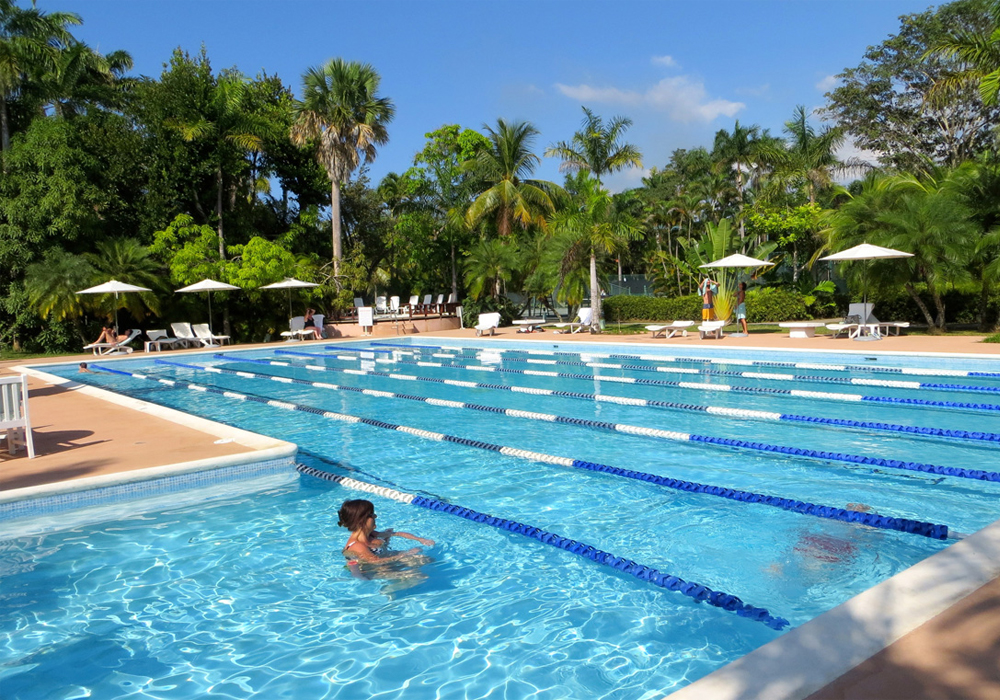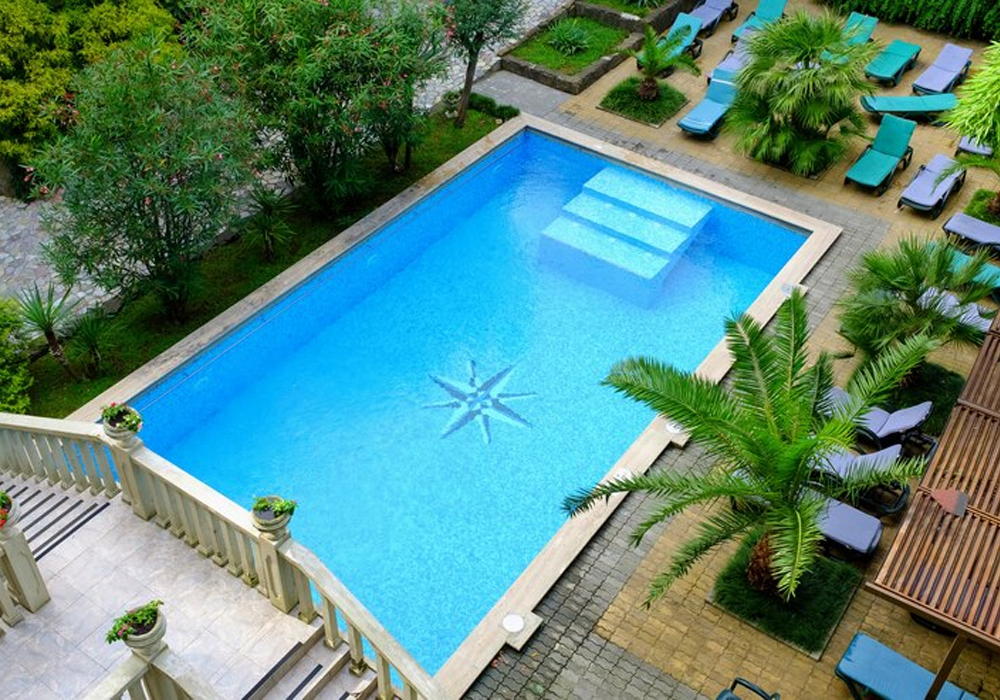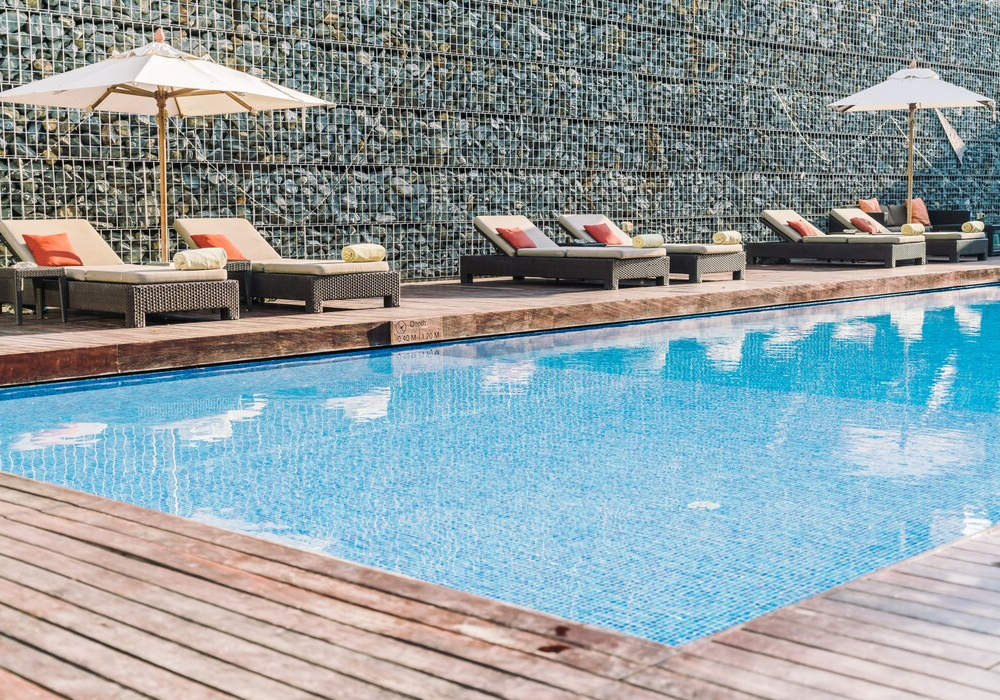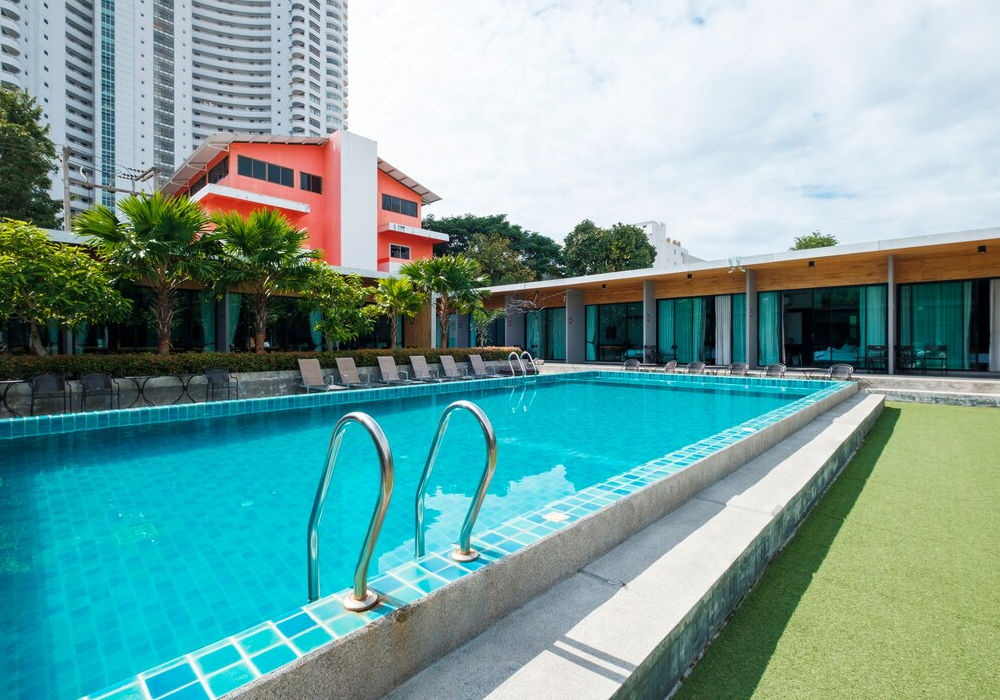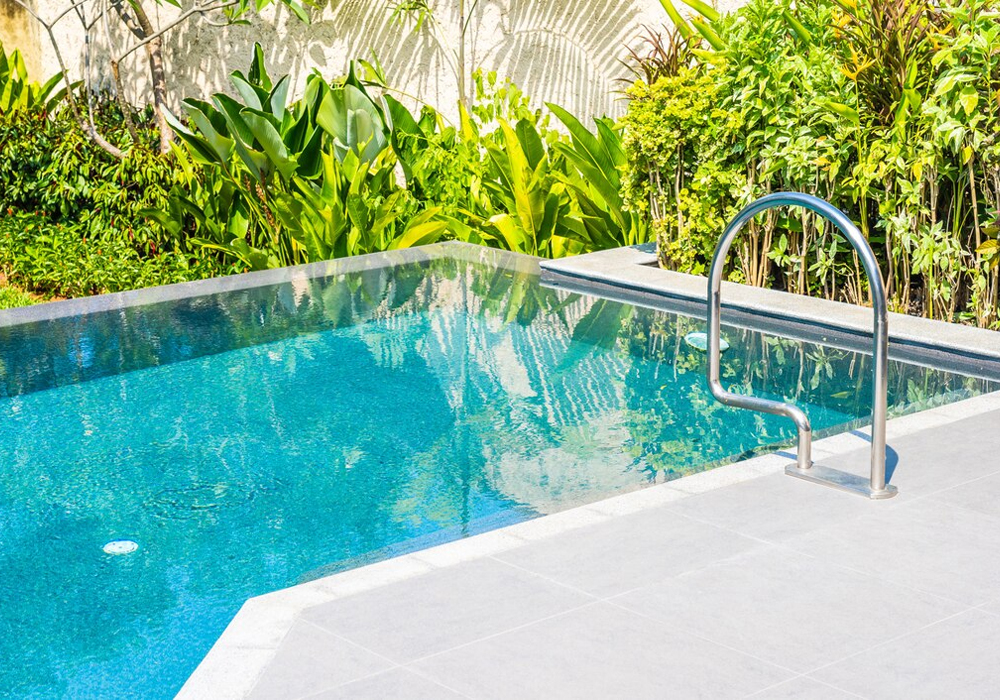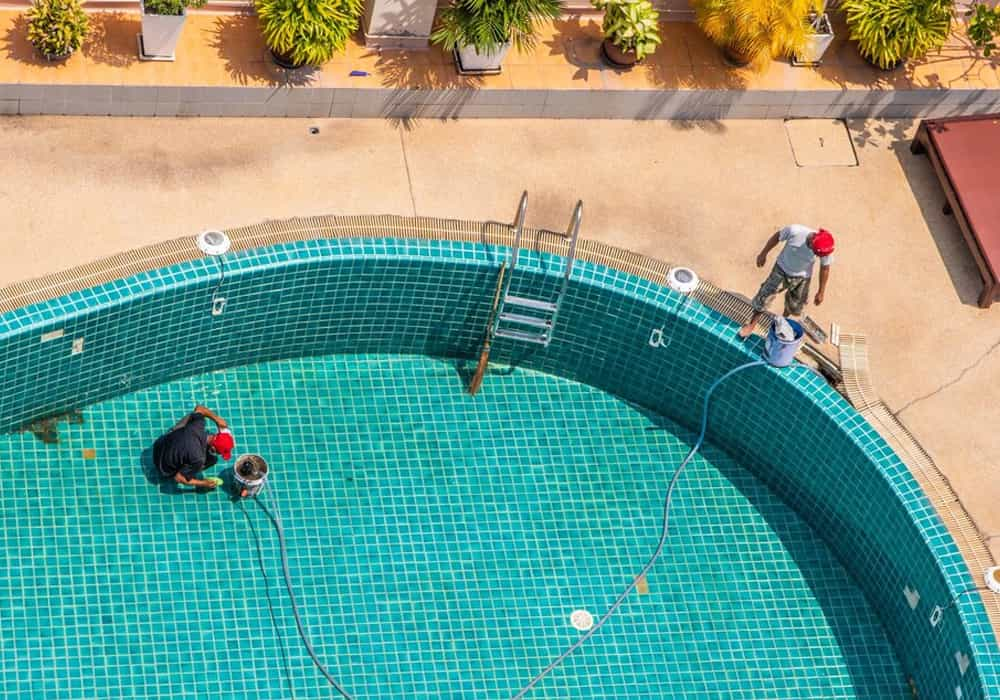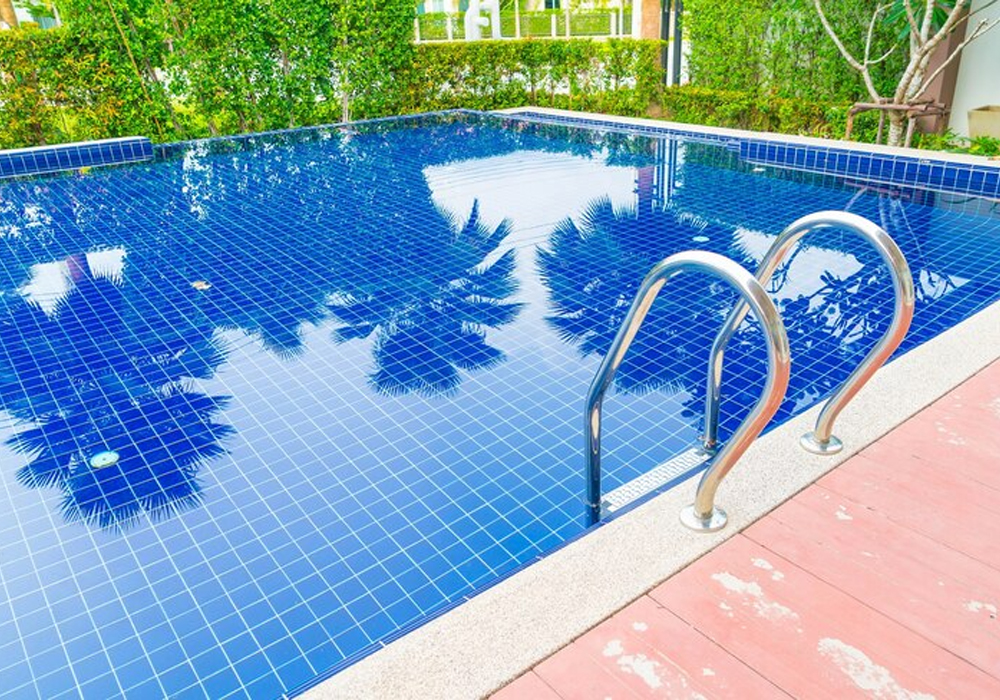
Swimming pools are fun to build for adding value to the home, providing more leisure options, and creating a great space to be with family and friends. Swimming pool construction is quite a resourceful venture and, most importantly, requires careful planning, budgeting, and execution. It would be best if you followed different stages of swimming pool construction with many decisions made, starting from the general design to the management of the building process. This blog will highlight some of the best tips that you can use to ensure your pool project runs smoothly and well completed to your satisfaction.
1. Define Your Pool's Use and Layout First
Before putting your shovel in the ground, town clear your mind about what your pool is going to be like. Ask few primary questions like:
- Will this pool be for pleasure or for exercise?
- Would it be designed essentially for family fun, or do you plan on having a regular social get-together by it?
- What size, shape, and style do you want your pool to have?
That would set you up to make some decisions about the design and more importantly, it will help you to make sure that the pool becomes just what you imagined. A family pool may need a large shallow area for kids to enjoy, while the lap pool might need to be long and not very wide for a fitness enthusiast.
Think also about your best pool style: sharp edges and a more modern sleek ambiance vs. a natural pool with a more organic-shaped silhouette like a lagoon type with rocks and waterfalls.
2. Put a Proper Budget in Place
Budgeting is one of the significant features of swimming pool construction. The cost of the pool building varies considerably based on size, material, features, and location. Generally speaking, standard pool construction could cost around $20,000-$50,000, while custom-made or posh pools could cost much more.
The following are some items that will affect your budget:
- Type of Pool: Concrete, fiberglass, and vinyl liner pools have different costs associated with them. Concrete pools are the most expensive but offer the most customization, while fiberglass and vinyl liner pools are cheaper.
- Size and Shape: The larger and more complex the design, the higher the cost.
- Additional Features: The entry of waterfalls, spas, fountains, lighting, or custom tiles will raise the price.
- Landscaping and Decking: Finally, we must not forget about this last trip: plan well for the surrounding landscaping, patio area, and the decking of the pool, as these also add to the beauty and feel of the pool.
Do not forget to include a detailed estimate on the pool contractor and really explain to them what was included in the estimate. It is always wise to set 10-15% of the pool's total value aside for exceptional things.
3. Choose the Right Pool Contractor
The success of your swimming pool project highly relies on hiring the right pool contractor. All works of your project from initial designs to the actual completion of construction will cover by a reputable contractor. Here are some ways to find the right one:
- Experience: Find a contractor who has built your kind of pool. They will have a good portfolio of jobs completed and will be able to show you what your pool will likely look like.
- Licensing and Insurance: Double-check that the contractor is well-licensed and insured. This helps prove they are qualified by industry standards and protected in case of accidents.
- References and Reviews: References to past clients, such as ratings on online reviews. A trustworthy contractor can be such in this manner: positive feedback and reputation.
- Transparency: A contractor that is clear about the costs, schedule, and any other obstacles that come up during the construction phase.
You should interview multiple contractors and compare the proposals before you make a final decision.
4. Learn the Permits and Regulations Involved
Most rules involve obtaining permits, safety regulations, and sometimes zoning laws. The building process should start after ensuring all legalities in your area.
- Permits: Most places will require you to apply for a building permit in order to break ground on the construction of your pool. This can typically be handled by the contractor, as they will know the local requirements.
- Zoning Laws: Pools might not be allowed in some areas of your property. The barriers fall under being too close to property lines or possibly to utility easements or other structures. Check with your local zoning office to ensure your pool is compliant.
- Safety Standards: There may even be other local regulations that would require such safety features as fences, pool covers, or alarms. Be very familiar with these requirements and make your design integrate them.
If you skip any legal conditions, you can find fines or delays. Therefore, always make sure that all requisite paperwork has been completed.
5. Plan the Pool's Location Carefully
The positioning of your pool within your backyard makes a lot of difference to both its function and beauty. These are just some of the things to consider before picking the most suitable place for your pool:
- Sun Exposure: You would like a pool to be in the sun for the enjoyment of swimming year-round. A completely sunlit pool is warmer, more inviting, and costs less to heat.
- Seclusion: Watch out for your privacy, and that of the views from other people's homes. For instance, you might want to put your pool in one part of your backyard, so it is less visible or install some privacy features like hedges or a fence.
- Utility Includes: Water and electric hookups will be needed. Verify that the pool location lies close to these utilities to avoid as high of an installation cost as possible without the headaches.
- Space: Consider the space available for the pool itself as well as the space that can hold an adjacent deck, patio, or lounge area. Make it large enough for landscaping and other features you may want to include.
6. Maintain Your Pool
Pool construction behind maintenance is one of the factors you should consider. A pool is an experience both enjoyable and rewarding; however, keeping it clean and maintained takes time and effort.
Some points to keep in mind are:
- Pool Type: Fiberglass and vinyl pools need less maintenance than concrete pools, which may require resurfacing every 10 years.
- Filtration System: High-quality filtration systems are required to maintain fresh water in your pool, free of debris. Periodic cleaning of the filter and chemical balancing of the water will ensure that the water is always safe and clear.
- Automation: Install an automated system for your pool, allowing it to carry out maintenance tasks like cleaning and chemical level adjustment. It will save you time and hassle in the future.
- Pool Covering: It is worthwhile to invest in a pool cover to prevent debris from contaminating the water when the pool is not in use. Frequent cleaning is thus curtailed.
Discuss your maintenance needs with your contractor, and ensure to budget the costs involved.
7. Never Forget Pool Safety
Pool safety is important to avert accidents, especially for those who have small children and pets. Here are a few safety measures to incorporate:
- Fencing: Fence your pool in with a self-locking gate. This is often required by law in many places, but even if it isn't, it's a worthwhile safety precaution.
- Pool Covers: A pool cover can prevent accidental falls into the water, and consider an automatic one for an ease of use.
- Alarms: Putting in pool alarms to alert you if anyone unexpectedly enters your pool area is worth considering. Alarms that detect movement in the water or on the poolside are available.
- Proper Monitoring: Always keep watch over young children and non-swimmers around the pool area. Everyone should know the rules of the pool and how to stay safe.
This gives added protection to your loved ones while ensuring that everyone will enjoy the pool in a responsible way.
8. Future Enhancements
Today your pool may serve all your needs; however, it's wise to consider future upgrades. Enhancements to a pool might consist of:
- Heated Pool: If you have plans to use the pool all year round, a heating system for those chilly winter months should definitely be on the list.
- Water Features: Waterfalls, fountains, and bubblers add that upscale touch to pool designs.
- Lighting: LED lighting can be installed on your pool for night swimming and mood enhancement.
By considering these features now, you can guarantee your pool is a fun and functional part of your home for many more years to come.
Conclusion
Building a swimming pool is an exciting project involving careful planning, budgeting, and execution. By following these top tips—from setting a realistic budget to safety and future enhancements—you can keep the pool construction project on course to be a beautiful and functional area for relaxation and enjoyment. With the right contractor, design, and attention to detail, your backyard oasis can be a long-term source of fun, luxury, and value for your home. Happy swimming!

